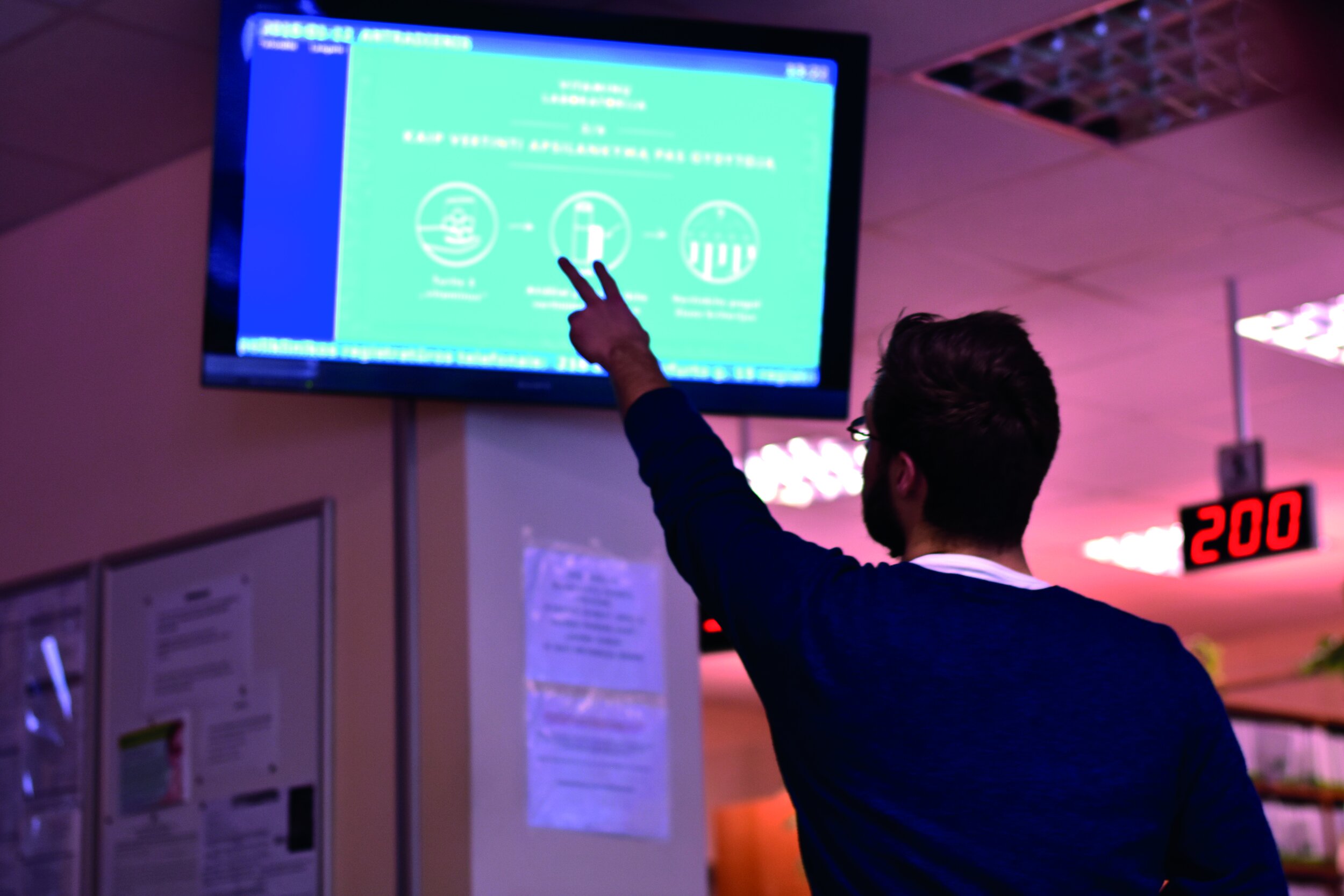Patients, who evaluate their visit at the doctor are more willing not to give bribes and tend to think that bribery will not ensure better service. Also, they are more inclined to recommend that health care institution to their family members and friends – it was shown in the social design experiment in Vilnius city’s Lazdynai clinic – the first of such kind in the EU – implemented by Transparency International Lithuania in 2016.
Vitamin Lab was set up in Lazdynai clinic’s waiting room, where every day for two months patients were able to evaluate doctors’ work as well as services provided by clinic’s employees. At the same time, family doctors were reminding them in various ways that professionalism, attentiveness and the ability to listen are their cornerstone values.
The results of the experiment showed that patients who were evaluating the quality of their visit in the clinic thought that the clinic was less corrupt. They tended to think more often that unofficial salary (20.3% in comparison with 31.4%, who didn’t participate in evaluations) or a gift (10.6% in comparison with 19.6%, who didn’t participate in evaluations) would not help to get better services in the clinic. Also, they would more rarely give unofficial gifts (18.7% in comparison with 24.3%) to the clinic’s staff. Vitamin Lab’s participants has better views about the clinic and were more inclined to recommend it to their family members and friends.
According to doctors and patients, this particular social design experiment stimulated both patients and doctors to change their communication habits. More patients (87.6% in comparison with 79.6% before experiment) said that doctors interact with them in a more respectful manner.




